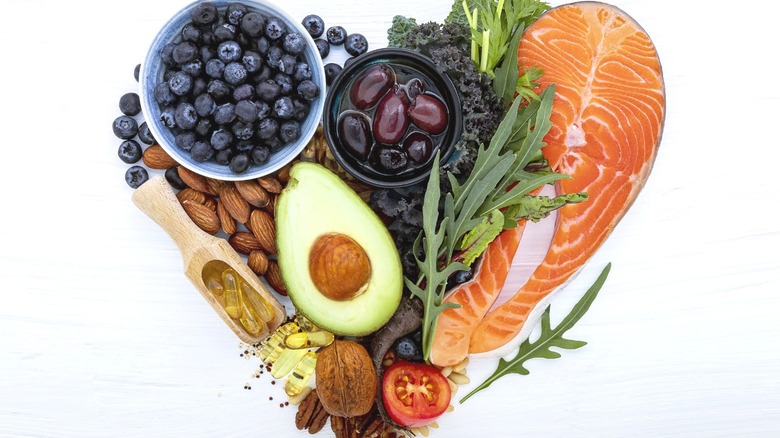Foundational Questions To Ask Yourself When Starting Food Therapy
With a new year around the corner, some might be reevaluating the months that have passed, considering what goals did or did not come to fruition, and looking forward to the new, personal challenges ahead. Among perhaps the most common resolutions is to eat better. But while the intention is there, eating better still lacks a sense of actionable steps to reach your desired outcome. Instead of dangling a lofty goal above your head like a carrot on a string that you either will or will not obtain — and no in-between — one dietician suggests taking small steps along the way to make reaching your food goals easier.
Should you be curious about committing to a changed diet — one that you hope will make you feel nourished and fulfilled — you could consider trying food therapy. Dr. Shira Barlow, dietician, author of "The Food Therapist," and host of the new daily podcast "Good Instincts," describes a common issue she sees amongst those who feel stifled by their food goals. "We want to eat more thoughtfully, but find ourselves making decisions driven by stress and convenience." While there are certain things everyone gets wrong about healthy eating, Dr. Barlow uses her podcast to break down how to approach your food goals and stick to them without losing sight of why you want to do so in the first place.
Two crucial questions
In the latest episode of "Good Instincts," Dr. Barlow shares how she first attempts to demystify what new clients really want out of their food habits by asking them this: "what do you want" and "how motivated are you?" Dr. Barlow notes that these questions are the first step when beginning food therapy. And the more detailed your answers are, the more you have to work with, she says.
Plus, there is no right or wrong answer. Dr. Barlow lists a few reasons why some seek to change their eating habits: from modeling healthy eating habits for their children, to training for an event, to lowering inflammation, balancing hormones, and improving gut health — or a combination of these and more. The spectrum is vast, but your goals should be your own.
Dr. Barlow also insists that, if your goal is to change your eating habits to change your appearance, your goals should be based on your own needs and body — "not some hot person you found on the internet," she says. There are also healthy ways to lose weight without dieting. "The reason is that these goals have to be rooted in reality in order for them to really work and properly serve you." Reminding yourself to pause, consider your short and long-term goals, and make food choices accordingly is crucial to making progress, the dietician notes. Of course, consult with your doctor or dietician before starting a new food regimen.

